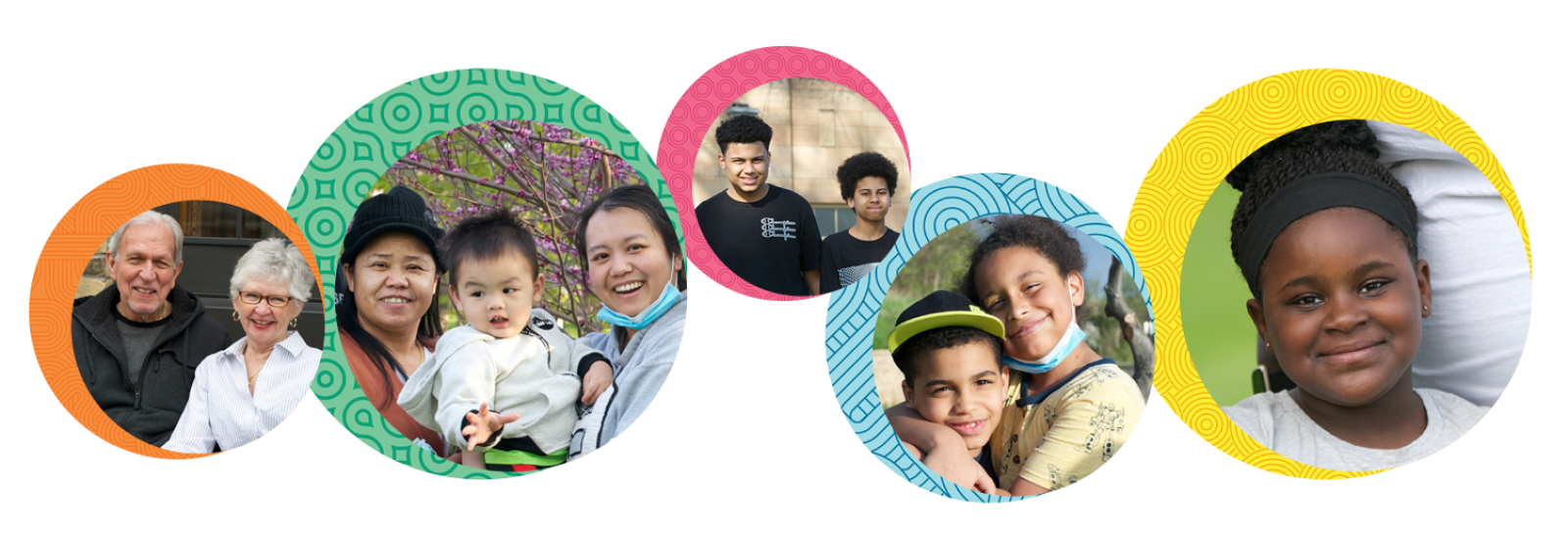
2021 Annual Report
Demonstrating the power of resilience and courageous change
Dear friends of Wilder,
Your support of Wilder and the people we serve means more than ever. We have remained a strong, stabilizing force for families throughout the pandemic because of the dedication of our many partners, donors, volunteers, and staff. I can’t thank you enough for your faith in our mission and in this community.
The past year has been full of disruption and uncertainty, but it has also offered opportunities to learn and grow. For me, the pandemic has made it clear that Wilder can best support the Saint Paul community by leaning into our whole-family approach. We are finding ways to integrate our services and research more and more every day to make it easier for families to get what they need in one place.

We officially launched the Campaign for Families this year to jumpstart our whole-family approach, and our partners and donors are responding. I’m proud to say we have raised $13.5 million dollars toward our $17 million goal. These funds are already being put to use to help build a stronger Saint Paul, one family at a time.
The most important lesson from this year has been the power of resilience. Wherever I go within Wilder, I see people showing up for one another no matter how great the challenges. Our staff and volunteers continue to help children, adults and families navigate the strain of these times as they themselves experience it. The people we serve accept our support and use it as a launching pad to create a better life for themselves and their families. When we offer each other strength in times of great need, our entire community grows stronger. Thank you for making that possible through your support of Wilder.
Very best,
Armando Camacho
See Wilder's Leadership: Board & Executive Team

☰On This Page
☰
Join our Campaign for Families to build a stronger Saint Paul, one family at a time!
The public phase of the Campaign for Families began in May 2021! Support from our donors and funders will help us reach our goal of $17 million to stabilize thousands of families, improve the mental health and well-being of our children and build wealth through life-changing connections.
HEALTH & WELLNESS
In the midst of the COVID-19 pandemic and visible examples of racial injustice in our community and across the globe, Wilder Community Mental Health and Wellness staff supported the mental health and wellness of 2,074 individuals last year, for a total of 61,041 service days.
Mental Health and Wellness Services in 2021: Safe, effective and responsive
The Community Mental Health and Wellness team adapted to continue providing mental health and recovery services to members of our community, balancing safety and effectiveness as the need for our services rose.
- In March 2020, we pivoted to largely telehealth services. We’ve experienced a significant increase in demand for both triage support and mental health services during this time. In fact, we added six additional clinicians to our outpatient team during the pandemic – some of whom we’ve just recently met in person.
- We formed a mobile team who has prepared and trained more than 170 providers to use our telehealth platforms. In addition, the team manages an inventory of over 200 devices that are loaned to clients for telehealth services and provide technical assistance to clients on how to access care using telehealth. This has been especially successful in maintaining access to services for our clients who are unstably housed, elderly, lack access to and/or are unfamiliar with technology, and clients who speak a language other than English.
- Day Treatment, the most intensive mental health service Wilder provides to children in Ramsey County, returned to in-person services in October 2020. Now that our families are more familiar with telehealth, however, we are more easily able to use that as an option if safety or weather concerns arise!
- In Assertive Community Treatment (ACT), our most intensive mental health service for adults, we continued to serve people in person with many safety modifications. We supported clients through COVID exposures and diagnoses, civil unrest, trauma from social injustice, and hate crimes targeting Asian Americans. Because our staff reflect our communities served, our team also experienced the impact of many of these same issues, and we realized part of the healing work we do is also ensuring that we are supported and healed so that we can show up for our community.
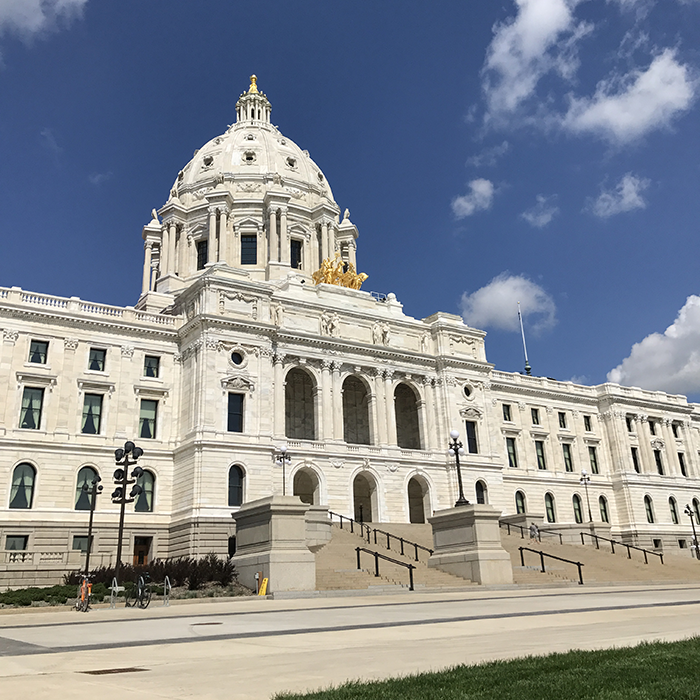
Small Act, Big Impact:
Wilder Center for Social Healing Volunteer

Simply being present and making small contributions does ultimately matter – especially over time.
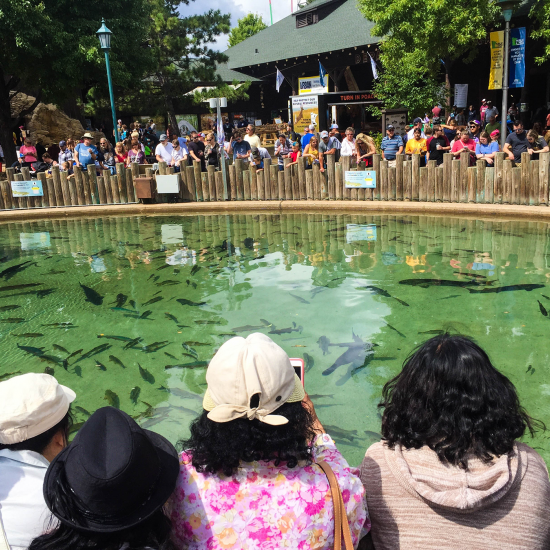
Cambodian Americans at Wilder Center for Social Healing Remind Volunteer Kai Miller that Small Contributions Make a Difference
Upon returning to the U.S. after five years of living and working in Cambodia, I found that readjusting to life in the US was difficult. I missed Cambodia, which was—and still is—a home for me. A family friend who worked at Wilder told m...More about this story »
Last year 462 older adults and caregivers were supported to age and care in community with Wilder’s Healthy Aging and Caregiver Services.
- 2,120 hours of respite provided for caregiver relief
- 114 hours of healthy aging and wellness education
- 78 hours of class leader training provided
- 105 high-rise public housing residents lived independently with help from Customized Living services
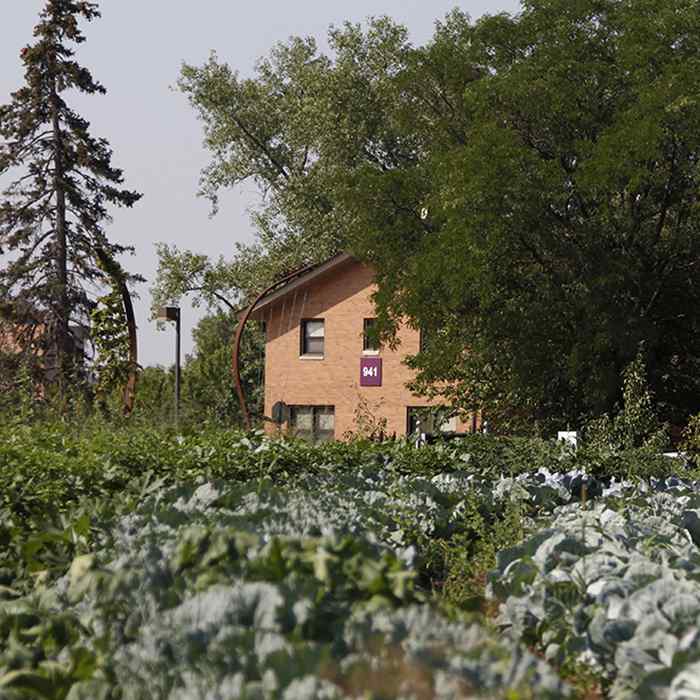
Healthy Aging & Caregiving Services serves the community in new and familiar ways
Wilder’s services for older adults and caregivers shifted quickly during the pandemic to meet the needs of our participants and the community. We are applying w... Read the article »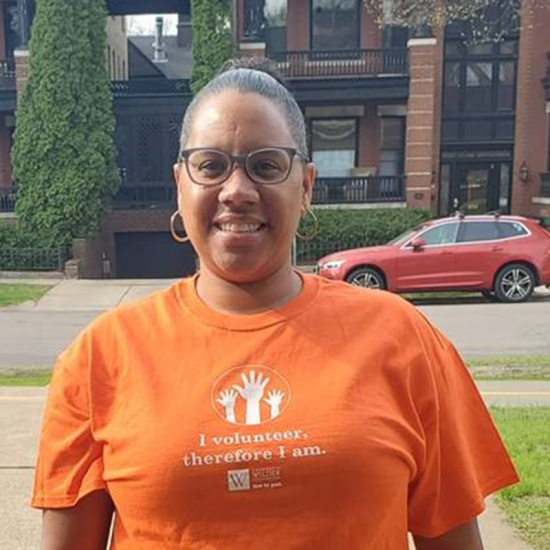
Meals on Wheels helps Wilder volunteer Tracey Cross stay involved during the pandemic
For many, the COVID-19 pandemic has meant stepping back to stay safe. For Tracey Cross, Wilder’s Meals on Wheels program provided the perfect opportunity to step out—and step up. "It gave me purpose,” Tracey says, calling volunteeri...More about this story »
Small Act, Big Impact:
Wilder Meals on Wheels Volunteers

Wilder delivered 54,052 meals to adults in Saint Paul neighborhoods with the Meals on Wheels program last year, a dramatic increase fueled by the need in our community and additional COVID funding to help cover participant costs. Packing and delivering these meals was a big job – and Wilder’s Meals on Wheels Volunteers were up to the task.
In April, Wilder honored more than 60 Meals on Wheels volunteers with the Sandy Kiernat Community Service Award for their extraordinary dedication during the pandemic. Congratulations, volunteers!
Without our Meals on Wheels volunteers, working both ‘behind the scenes’ and out delivering meals, our programming simply wouldn’t exist.
Stability & Growth
95 toddlers and preschoolers attended the Wilder Child Development Center, which provides early childhood education for children ages 16 months to 5 years and supports the whole family.
Early Childhood Education
The Wilder Child Development Center is a child care center and preschool that prepares children for success in kindergarten with early childhood education, focuses on social and emotional learning, and supports the whole family. During the COVID-19 pandemic, many in-person events that help strengthen the parent community were paused, but parents connected with each other and continued building social and emotional learning with their child through a parenting group.
Small Act, Big Impact:
Wilder Child Development Center Donors


Grand Master Yong Hyeok Lee, founder of Lee’s Champion Taekwondo Academy, presented a $1,000 gift to the Wilder Child Development Center’s Director Angie Clair. The gift is the result of a fundraiser Grand Master Lee did by selling his book, From Benchwarmer to Champion, in honor of his son Brandon’s birthday. The gift was used to purchase new gym and playground equipment.

Ruth Fingerson’s family rocking chair graced her home for 56 years, since her husband Mike brought it home in 1965 for their first child, Mark. It was a comforting chair for their two daughters too, Karin and Laura. Now that the children are grown, Ruth wanted to find a special place for her beloved chair that held so many warm memories. She donated it to Wilder’s Child Development Center, where it will comfort many more children in the years to come. Of her donation, Ruth says, "I just want people to know that ordinary folks can make donations that are meaningful."
It gives you peace of mind. I’m here because my kids deserve a chance like any other kid. I want my kids to have a career.
Supporting Child Care Assistance
Nearly 75 percent of the families whose children attend the Wilder Child Development Center rely on the Child Care Assistance Program and early learning scholarships to pay tuition. In May, Governor Walz and other elected officials visited the Child Development Center to highlight the impact of the program.
Supportive Housing Services & Wealth Building
The COVID-19 pandemic created financial uncertainty for many Minnesotans. Wilder’s housing team partnered with the state of Minnesota to provide 475 households with money for back rent and utilities through the COVID Housing Assistance Program. Some of those participants then transitioned to the Direct Housing Assistance Program for additional financial support and stability.
How individuals and families were supported with Family Supportive Housing Services in 2021
- 757 individuals received intensive case management services and rental housing subsidies as they moved from homelessness to stability.
- 287 individuals experiencing financial challenges received Direct Housing Assistance, an innovative rental and mortgage support program that helps families stabilize before they experience homelessness.
- 661 individuals took part in UpTogether, which offers direct cash investments to families that share the initiatives they’re taking to improve their lives.
Preventing homelessness starts with trust. That’s why strong relationships between housing participants and staff are a critical component of providing supportive housing services at Wilder. Our Family Supportive Housing Services team continued to build relationships and understand our participants’ needs even during the continued social and physical isolation of the pandemic.
- Supported families with basic needs and extra rental assistance
- Provided emotional support with video calls and phone check ins
- Provided personal protective equipment, cleaning supplies and opportunities for onsite vaccinations when possible
- Offered families community resources and tools for children’s educational supports
- Offered virtual workshops and financial coaching in partnership with Build Wealth MN
- Offered a virtual tenant training course and a virtual healthy relationships course
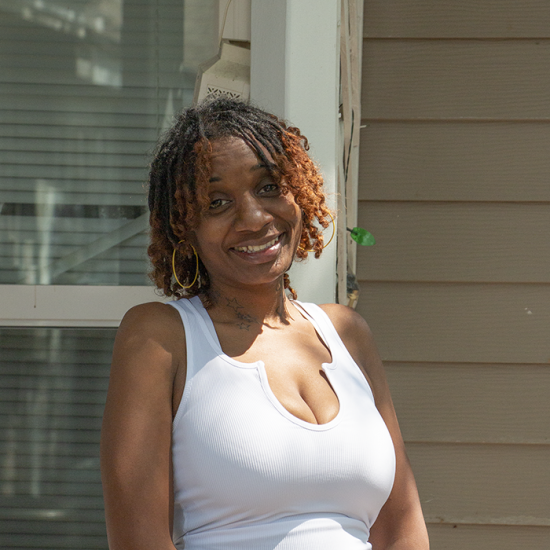
Tonya’s family creates a stable life with Wilder's housing services
Tonya B. and her teenage son stayed wherever they could before they were accepted into a Wilder supportive housing service for working families who were experiencing homelessness. Tonya, who also has two adult children and a grandchild, ...More about this story »
Connections & Partnerships
Achievement Plus Community Schools
Achievement Plus Community Schools served members of three school communities totaling 1,180 students and are exploring opportunities with Saint Paul Public Schools and community partners to expand our impact across the East Side and North End of St Paul.
- Dayton's Bluff Achievement Plus Elementary School
- John A. Johnson Achievement Plus Elementary School
- Saint Paul Music Academy
Saint Paul Promise Neighborhood
The Saint Paul Promise Neighborhood and its partners served more than 500 children through summer learning loss prevention programming; two cohorts completed the People’s Fellowship, and 328 families, including 1,400 kids, received toys, coats and food baskets in partnership with Hallie Q. Brown Community Center; and 200 families received wraparound services, meaning culturally responsive services that support the whole family.
African American Babies Coalition and Projects
The African American Babies Coalition and Projects worked to close gaps in prenatal, maternal and infant well-being with the Black and Brown Birthing Summit, which reached hundreds of health care workers; a Youth Healing Vessels Forum distributed in local high schools and a youth cohort focused on introducing participants to careers in health care, testimony at the Minnesota Legislature, a workplace breast feeding rights campaign, and more.
15 community leaders deepened their knowledge and engagement with the state legislature through the Community Equity Program.
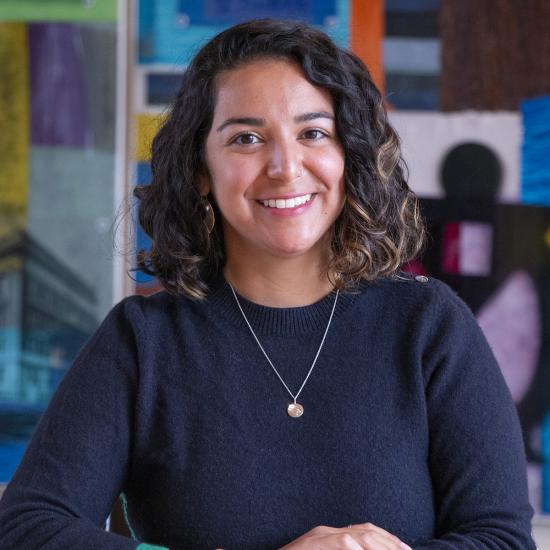
Priscilla Villa-Watt Used the Community Equity Program to Enhance her Public Policy Skills While Building a Community
After working to strengthen environmental protections in Texas, Priscilla Villa-Watt moved to Minnesota in 2019 to become the advocacy and public policy manager for Eureka Recycling, a nonprofit zero waste organization and social enterpr...More about this story »
Wilder Center’s event space hosted 68 events, with an estimated attendance of 15,000 people! In addition to in-person meetings, Wilder has run virtual meetings for internal and external groups. Wilder is using new technology and installing more options to accommodate the future of virtual and hybrid functions.
Information and Insights
Much like the rest of the world, Wilder Research was greatly impacted by the COVID pandemic.
Many of our staff faced furloughs and reduced hours as a result. In the midst of these challenges, we quickly adapted and figured out ways to conduct research and evaluation remotely, allowing us to continue partnering with nonprofits, government agencies, foundations and community organizations who needed reliable data and information now more than ever to guide their important work to support Minnesota residents and communities.
- When the pandemic began, Minnesota Compass committed to regularly assembling and updating data related to COVID 19 and its impacts to ensure Minnesotans have up-to-date information. Data includes demographic measures associated with COVID-19's prevalence and outcomes, like concentrations of people by age, race, ethnicity, and cultural community, as well as predictors of risk, social determinants of health, and how the pandemic affects Minnesotans' quality of life. Explore the data.
- The City of Brooklyn Park hired Wilder Research to uncover the root causes of violence in Brooklyn Park, understand community perceptions of the Brooklyn Park Police Department, create research-driven recommendations to improve community safety, and develop a tool to assess and improve the Brooklyn Park Police Department’s performance. The city is now seeking volunteers to serve on the Brooklyn Park Police Department Scorecard Community Task Force to help promote transparency, accountability, and positive relationships with Brooklyn Park residents and stakeholders using the scorecard developed by Wilder Research. Learn more about the study.
- Every three years, Wilder Research conducts the statewide Minnesota Homeless Study to better understand the prevalence of homelessness in Minnesota and the circumstances of those experiencing homelessness. Scheduled for October 2021, we consulted with multiple state, tribal, county, and private partners who work in housing and homelessness and decided to postpone the homeless study until 2022 in order to avoid further strain on a heavily burdened housing system, and ensure the safety of our staff, volunteer interviewers, and anyone experiencing homelessness who would participate in the study. Learn more about the study and how you can help.
- Wilder Research partnered with the Missing and Murdered Indigenous Women Task Force to examine the root causes, systemic problems, and potential solutions to violence against indigenous women and girls in Minnesota, including members of the two spirit community. The study findings and recommendations led to the Minnesota Legislature creating a Missing and Murdered Indigenous Relatives Office within the State of Minnesota - the first of its kind in the United States - which will be a centralized place in Minnesota where state agencies, advocates, tribes, and others can be coordinated and held accountable for reducing and eliminating violence, and helping Indigenous women and girls heal. Learn more about the study and read this opinion piece in the Star Tribune about the effect of the study and the work remaining.
Wilder Research by the Numbers
- 334 times our research was cited in the media
- 256 reports produced to inform decision making by organizations
- 118 publications added to the Research Library to download for free
- 954 people attended Wilder Research presentations/trainings
- 156 organizations served
How Wilder Research Adapted:
Virtual Journey Mapping Sessions
Wilder Research’s Jackie Aman and Jessica Tokunaga pivoted to conduct virtual journey mapping sessions for 15 organizations participating in the Center for Prevention at Blue Cross and Blue Shield of Minnesota Health POWER (People Organizing and Working for Equitable Results) project, which were originally to be held in-person. Visual note takers captured and created 15 beautiful journey maps representing each organization’s feedback about their work to improve community health and address inequities through policy, systems, and environmental changes.
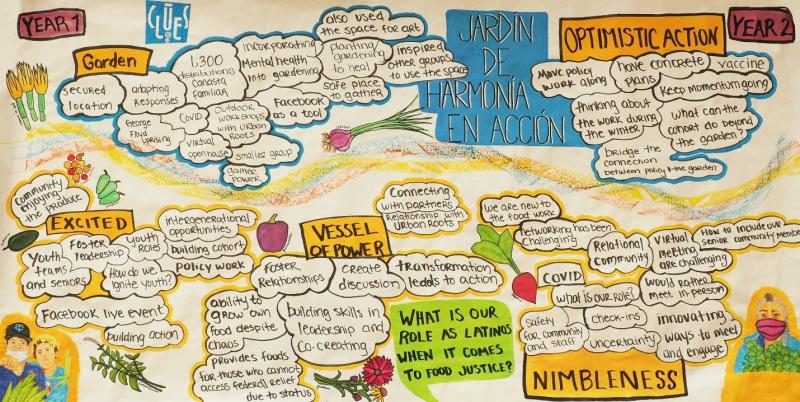
Thank you, Wilder Supporters
We are grateful to our generous donors, sponsors and funders. The individuals, families, businesses and institutions who give to Wilder make our mission possible. Thank you!

Thank you, volunteers and interns, for supporting our mission and helping to create a lasting, positive change for the families and communities we serve in Saint Paul and beyond!

In 2021, 154 volunteers and interns contributed 11,964 hours to support Wilder's mission.
- 123 volunteers who contributed 5,329 hours with Wilder’s Healthy Aging and Caregiving Services, Meals on Wheels, Board of Directors, Child Development Center, communications, fundraising and program operations.
- 31 interns who contributed 6,635 hours with Wilder’s Healthy Aging and Caregiving Services, Child Development Center, and Mental Health & Wellness Services including School-Based Mental Health and Recovery Services.
Financial Reports
The financial information is presented based on audited financials on an accrual accounting basis. Endowment use on a cash basis is approximately 4% ($1.7 million) of total operating expenditures for FY2021.


Wilder's Current Spending Policy for Endowment
The Foundation’s policy for the use of endowment funding is based on a three-year goal to achieve 5% spend of the projected endowment balance by FY 2023. For fiscal year 2021, the goal was set to 7% of the projected endowment balance on July 1, 2020. In establishing this policy, the Foundation considered the long-term expected return on the endowment and the need to preserve the endowment and not spend beyond returns over the long term. This is consistent with the Foundation’s objective to maintain the purchasing power of the endowment assets held in perpetuity or for a specified term as well as to provide additional real growth through new gifts and investment return.




